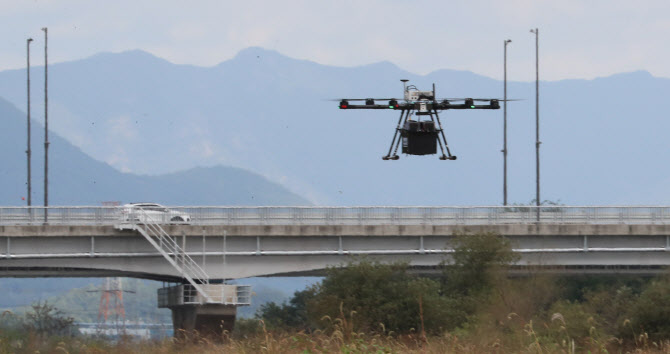Drone Delivery of Parcels... Coexistence with Traditional Logistics Services
Dec. 29. 2023Page info
In the future, it is expected that parcels will be delivered not by humans but by drones or robots.
The Ministry of Planning and Finance, through a cooperative coordination body composed of relevant ministries and stakeholders, has announced its plan to pursue a legislative amendment to include drones and robots as applicable means of transport under the Livelihood Logistics Services Act. Currently, the law only recognizes cargo trucks and two-wheeled vehicles, leaving no legal grounds for the use of other means such as drones and robots.
The proposed agreement acknowledges the use of drones and robots in livelihood logistics transport. It explores ways to supplement existing services by expanding drone deliveries to remote areas or utilizing robots for parcel sorting and loading/unloading processes.
The agreement also aims to establish support measures to protect existing workers in the livelihood logistics service industry, with related budgets allocated for implementation.
The government plans to reflect the agreement's results in a revised version of the Livelihood Logistics Services Act, scheduled to be introduced early next year. Starting from December, a drone delivery and robot delivery service demonstration project will be launched in Kimcheon City, Gyeongsangbuk-do.
Earlier this year, the government selected the future-oriented transport means in livelihood logistics services as a pilot project for the "Han-Geuleum" model, a social consensus and cooperation system designed to resolve conflicts related to the institutionalization of new businesses and encourage mutual cooperation.
The Ministry of Planning and Finance emphasized the significance of the task, stating that the initiative sought to proactively achieve social consensus in preparation for the commercialization of drone and robot delivery services. The goal is to confirm the potential for increased productivity and improved consumer welfare in the field of livelihood logistics services through the utilization of drones and robots for tasks such as loading/unloading and delivery in remote or challenging terrains.
